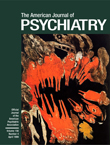Kandel’s Challenge to Psychoanalysts
To the Editor: Eric R. Kandel, M.D.’s, vision of twenty-first century psychiatry is the latest and probably the most sophisticated version of biological reductionism. Proclaiming that everything including learning, social experiences, and environmental factors is, or will be, ultimately represented by a genetic code creates a dangerous cleavage between basic and clinical research and implies that empathetic listening and insight leave “little room for intellectual contents.” Thus, one gets the impression that only biologically minded psychiatrists are intellectual, that only those who do research are intellectual, and that orientations other than the biological one lack curiosity, originality, substance, and truth-seeking objectives.
Psychoanalysis’s domination of American psychiatry certainly had a strong ideological bent (1), which made it dogmatic, rigid, and intolerant. Alas, the implication from Dr. Kandel’s article is that everything in psychiatry should be subjected to the biological orientation and the research it fosters. Advocating the neurologization of psychiatry reflects perhaps little experience in the profound human encounter that psychotherapy as well as evaluation, diagnosis, and disposition planning—in short, clinical work—entails. Psychiatry has always resisted compartmentalization and has always pursued a comprehensive, integrative approach. Predicting its demise and its replacement by hybrids such as “psychoanalytically oriented neuroscience” or “biologically based psychoanalysis” is nothing new (2). Many medical students who choose psychiatry today do so because they still see it as a clinical endeavor and want to practice its humanistic message. Neuroscience may become the basic research field that Dr. Kandel advocates, whereas the clinical approach to the care of and research on suffering human beings will still be called psychiatry.
The remark that psychoanalysis lacks a scientific or “questioning” tradition ignores the attempts and contributions of many psychoanalysts (3). The different cultures of biology, psychoanalysis, and psychiatry as fields of inquiry should be recognized, and justice should be done to the richness of the interface, interactions, and linkages that confer equal relevance to the genetic basis of behavior and to its environmental or sociocultural components (4).
The dominance of biological psychiatry in academic departments and residency training programs in the 1990s is undeniable. That psychopharmacology, neuroendocrinology, or biochemistry are not, strictly speaking, the brand of biology (genetics, molecular biology) that Dr. Kandel advocates does not deny such a trend. We should be aware, however, of the dangers of science becoming an ideology, with all of its potentially dogmatic implications. By no means do I imply that such was Dr. Kandel’s intention, but the risk is that his piece may nurture the narrow views of scientific absolutism.
1. Sabshin M: Science, pragmatism and the progress of psychiatry, in Contemporary Themes in Psychiatry. A Tribute to Sir Martin Roth. Edited by Davison K, Kerr A. London, Gaskell, 1989, pp 3–11Google Scholar
2. Torrey EF: The Death of Psychiatry. New York, Wiley & Sons, 1974Google Scholar
3. Marmor J (ed): Modern Psychoanalysis. New Directions and Perspectives. New York, Basic Books, 1968Google Scholar
4. Eisenberg L: Seed or soil: how does our garden grow? (editorial). Am J Psychiatry 1996; 153:3–5Link, Google Scholar



